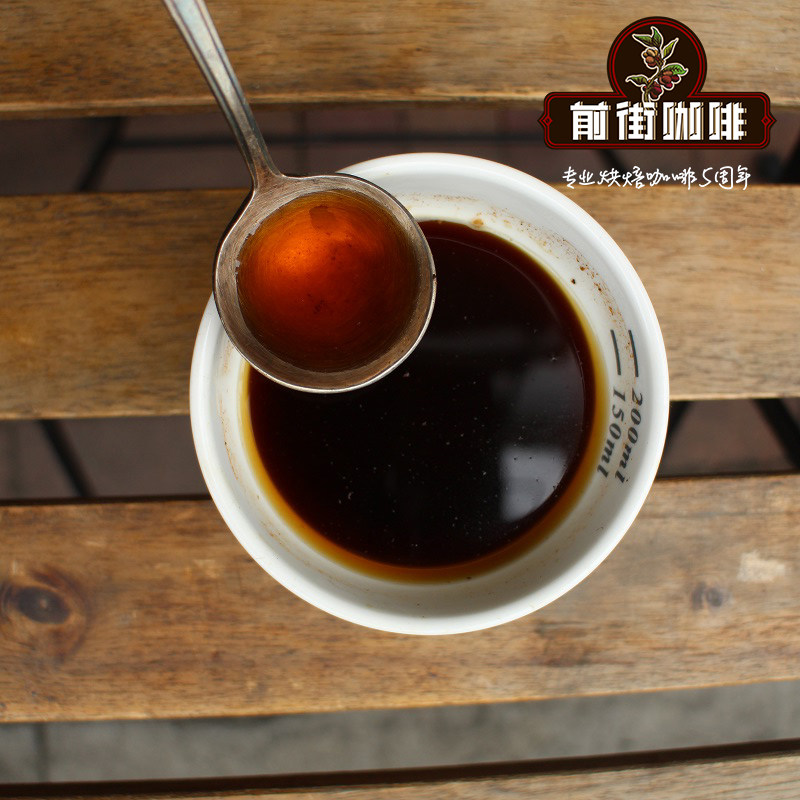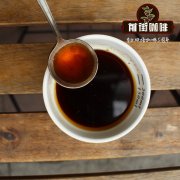Where is the Kenyan coffee growing location? Kenya kangunu Kangunu treatment Plant washing

Professional coffee knowledge exchange more coffee bean information please follow the coffee workshop (Wechat official account cafe_style)
Where is the Kenyan coffee growing location? Description of the flavor characteristics of washed coffee in Kenya kangunu Kangunu treatment plant?
The Kangunu processing plant is located in Embu, an important coffee producing area on the south-eastern slope of Kenya. The area sits at an average high altitude of 1650 meters, and nearly 70% of the population are small farmers. Most of them grow tea and coffee. It can be said that almost all the coffee comes from local small coffee farmers. The treatment plant has been in operation since 1966 and is located in the foothills of Mount Kenya about 1750 meters above sea level. It carries out post-processing of coffee cherries for coffee farmers in neighboring towns.
Africa has always been one of the best coffee producers in the world, and is famous all over the world for its charming acidity and aroma, and Kenya is certainly not absent. Kenya is a big coffee country in East Africa and one of the most important and irreplaceable producers, next to the Republic of Ethiopia, the original place of coffee in the world. Coffee farmers are generally highly educated, studying fine agriculture and growing top coffee. Coffee producers in Kenya are mainly divided into two types, the first type is large estates, and the other is the so-called "small farmers". However, whether they are large coffee farms or small farmers, the coffee beans produced by them have been refined, the vast majority will be transported to the official Kenyan coffee shop for unified grading identification. The coffee bureau will first send samples of the coffee beans to be auctioned to interested buyers for trial, and hold an auction every Tuesday at the Nairobi Coffee Exchange Coffee Exchange in Nairobi, the capital of Kenya. Through a transparent auction mechanism and a dual-system parallel approach of official sales agents and independent sales agents, foreign buyers can also directly negotiate with corresponding producers to buy coffee. There is no need to go through the official auction board, so producers' hard work can be rewarded more fairly and equitably, without being exploited by the brokers in the middle. Because of this, coffee farmers are more willing to try their best to produce high-quality coffee beans in order to sell at a good price.
The coffee grading system in Kenya is distinguished by AA-Plus (AA+), AA and AB, which refers to the uniformity of the particle size of coffee beans rather than the quality of coffee. High-quality Kenyan coffee beans are commonly grown between 4200 and 6800 feet (1300-2100 meters) above sea level. The Kenyan AA Kaguyu introduced this time is refined by the Tika processing Plant, which has a history of at least 92 years in central Kenya. Located in the Aberdare Mountains of central Kenya, the town of Tika is more than 1800 meters above sea level. Due to the influence of high altitude, the temperature does not exceed 27 degrees even during the day, and the low temperature falls around 15 degrees, which is quite suitable for the climate of coffee trees.
Boutique coffee (Specialty Coffee) can also be called selected coffee, exquisite coffee, the original text should mean "special, specially selected" coffee, "boutique" gives people the feeling of being good-looking, but it may be due to the influence of the trend in recent years that the word "boutique" can give people a high-level impression as long as anything is worn on it. Therefore, at present, the domestic mainstream is still commonly known as "boutique coffee" rather than "refined coffee, select coffee". Personally, I think that the next two names should be more in line with the spirit of this kind of coffee, and the price of "boutique coffee" is actually not high. Coffee should be a kind of people-friendly drink that everyone can afford. The word "boutique" seems to be equated with expensive boutiques such as LV and Chanel.
Country of production: Kenya Kenya
Producing area: Kiriyaga Kirinyaga
Class: AA level
Producer: Mulua Coffee Farmers Association Murue Coffee Farmers Co-operative
Processing plant: Dika Coffee processing Plant Thika Coffee Mills
Treatment method: washing method Washed
Product type: SL28
Haiba: 1700 Murray 1950 meters
Flavor narration
Tropical fruit, BlackBerry, black vinegar millet, kumquat, citrus, cream, apricot
The Kangunu processing plant is located in Embu, an important coffee producing area on the south-eastern slope of Kenya.
This area has an average high altitude of 1650 meters.
Nearly 70% of the population are small farmers, most of whom grow tea and coffee
It can be said that almost all the coffee comes from local small coffee farmers.
The treatment plant has been in operation since 1966
And is located in the foothills of Mount Kenya about 1750 meters above sea level.
Post-processing of coffee cherries was carried out for coffee farmers in neighboring towns.
The annual temperature in coffee producing areas is 12-25 degrees, and the annual rainfall is 1600mm.
Because of the fertile volcanic red soil, some farmers also grow tea.
In addition to the advantages of the environment, Kangunu also attaches great importance to the interaction with local farmers.
Through ongoing agricultural practice workshops and the establishment of transparent partnerships based on integrity
Look forward to further support its coffee partners.
Qianjie recommended cooking method: hand flushing
V60 filter cup, 15g powder, water temperature 89 degrees, small Fuji grinding degree 4, water powder ratio close to 1:15.
30 grams of water steaming, steaming time for 30 seconds, subsection: injection to 130 grams of water cut off, such as the water level dropped by 1 stroke 3, again water injection to 225 grams.
Important Notice :
前街咖啡 FrontStreet Coffee has moved to new addredd:
FrontStreet Coffee Address: 315,Donghua East Road,GuangZhou
Tel:020 38364473
- Prev

Jasmine-flavored Ethiopian Guji Coffee beans-cultivation of washed beans on a single Farm in Kayong Mountain
Professional coffee knowledge exchange more coffee bean information please follow the coffee workshop (Wechat official account cafe_style) jasmine flavor of Essex Yaguji coffee beans-Cayong Mountain single farm washed beans planting story? How to cook it by hand? Kayong Mountain Farm (Kayon Mountain Farm) was founded in 2012 and is located in Oromia State (Oromia) in southern Ethiopia.
- Next

How should the coffee be roasted? What are the characteristics of Ye Jia Xuefei coffee
For more information on coffee beans, please follow the coffee workshop (Wechat official account cafe_style) Ethiopia is the birthplace of Arabica coffee beans and the country where coffee was first discovered. There are still many wild coffee varieties in the primeval forest of Kaffa. The first impression of Ethiopia is usually poverty, backwardness and hunger, without history.
Related
- Detailed explanation of Jadeite planting Land in Panamanian Jadeite Manor introduction to the grading system of Jadeite competitive bidding, Red bid, Green bid and Rose Summer
- Story of Coffee planting in Brenka region of Costa Rica Stonehenge Manor anaerobic heavy honey treatment of flavor mouth
- What's on the barrel of Blue Mountain Coffee beans?
- Can American coffee also pull flowers? How to use hot American style to pull out a good-looking pattern?
- Can you make a cold extract with coffee beans? What is the right proportion for cold-extracted coffee formula?
- Indonesian PWN Gold Mandrine Coffee Origin Features Flavor How to Chong? Mandolin coffee is American.
- A brief introduction to the flavor characteristics of Brazilian yellow bourbon coffee beans
- What is the effect of different water quality on the flavor of cold-extracted coffee? What kind of water is best for brewing coffee?
- Why do you think of Rose Summer whenever you mention Panamanian coffee?
- Introduction to the characteristics of authentic blue mountain coffee bean producing areas? What is the CIB Coffee Authority in Jamaica?

